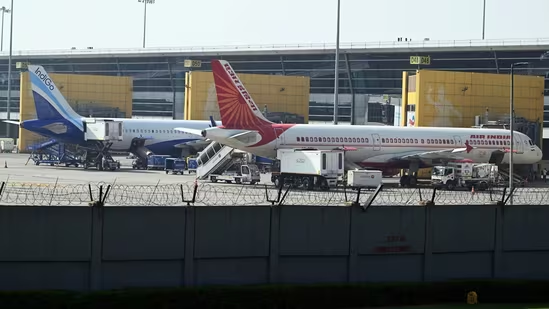15 october 2024 : The last 24 hours have seen heightened tensions in India-Canada diplomatic relations. Following the recent ASEAN summit in Laos, India has withdrawn its diplomats and expelled six Canadian diplomats, indicating that the situation, rather than resolving a year-long conflict, is likely to escalate further. Historically, aviation has been a significant geopolitical tool, as seen when Pakistan closed its airspace to Indian flights after the Balakot strike in early 2019, and India and China have not yet resumed direct flights since COVID. Similarly, Western carriers avoided Russian airspace after the Ukraine conflict.
Despite the diplomatic fallout, air connectivity between India and Canada is thriving this winter. Data from aviation analytics company Cirium shows that there will be 39 weekly non-stop flights this December, an increase of 20 from December 2019, which was the last winter before the pandemic.
According to Forbes, the number of Indians traveling to Canada has quadrupled since 2013, as many choose the easier immigration process to Canada over the U.S. Indian Canadians tend to visit India during the colder winter months in Canada and return in summer, contributing to seasonal travel patterns. Besides non-stop flights, routes through European and Middle Eastern hubs remain popular. Data from the Directorate General of Civil Aviation (DGCA) shows that 98,827 passengers traveled directly from Canada to India in the October-December 2024 quarter, while the April-June 2025 quarter saw 82,383 passengers flying the other way, with return traffic from India to Canada reaching 95,518.
City Connections
This winter, Air India is operating 21 weekly flights to Canada, all from Delhi, including twice-daily services to Toronto and daily flights to Vancouver. Air Canada will offer 18 non-stop flights, with daily services from Toronto and Montreal to Delhi, as well as four weekly flights from Toronto to Mumbai. They will also connect Calgary to Delhi via London.
While diplomatic relations may be strained, India and Canada updated their Bilateral Air Services Agreement (BASA) in 2022, allowing unlimited flights between the two countries, a significant increase from the previous cap of 35 weekly flights. However, the agreement isn’t entirely open skies, as Canadian airlines are limited to six major cities, while Indian carriers can access Toronto, Montreal, Vancouver, Edmonton, and two other locations to be decided later.
In terms of capacity, Air India will use the B777-300ER aircraft, providing 7,182 weekly seats, while Air Canada will operate a mix of B777-200LR and 787-9 aircraft, offering 5,386 weekly seats. Additionally, Air Canada will have 2,086 extra seats available for its Delhi-London-Heathrow-Calgary route.
Potential Impact
It is uncommon to reverse a recently signed agreement. However, safety and security concerns are paramount. The Kanishka bombing of 1985, which has Canadian links, underscores the importance of addressing safety threats. Both the government and airlines are continually assessing and implementing measures to ensure the safety of flights, crews, passengers, and cargo. The evolving situation will dictate future air connectivity.
The effects on tourism and the student population may become apparent over the next few quarters. Although India has not yet reached pre-COVID levels of foreign tourist arrivals, the trend of Indians traveling globally is on the rise. While India and Canada maintain trade partnerships, their trade volumes—both imports and exports—account for less than 1% of India’s total.
Future Considerations
Diplomatic relationships often involve subtle negotiations, including managing trade and air travel without outright refusals, and handling visa approvals at the last minute. The outcome of back-channel talks and how diplomats navigate the current situation will significantly influence the future of India-Canada relations.

